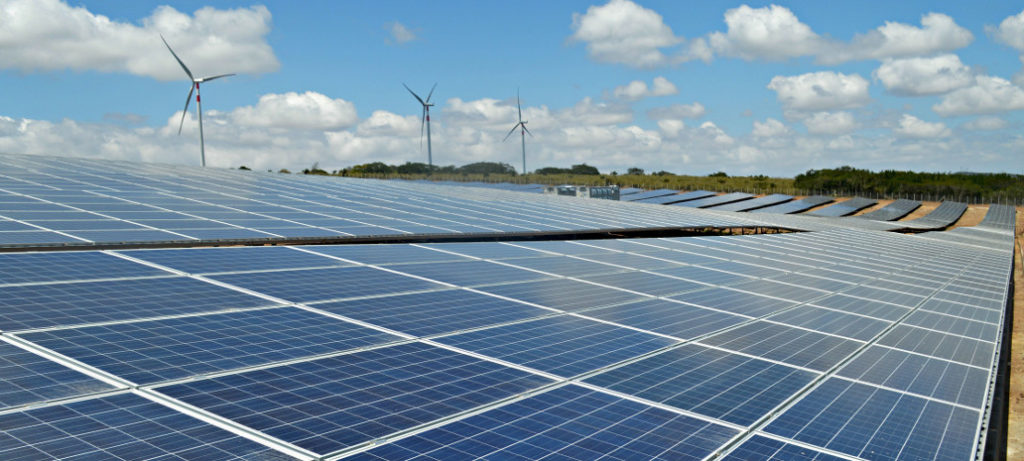Issued by the Ministry of New and Renewable Energy on May 14, the new policy aims to encourage new technologies and techniques involving combined operation of wind and solar PV plants, with a goal to reach wind-solar hybrid capacity of 10 GW by 2022.
The policy promotes new hybrid projects as well as hybridisation of existing projects (wind or solar) and provides for flexibility in the share of wind and solar components in the hybrid project. This is subject to the condition that rated power capacity of one resource should be at least 25% of the rated power capacity of other resource for it to be recognised hybrid project.
The new policy also mandates procurement of power from a hybrid project on tariff-based transparent bidding process, for which government entities may invite bids. These projects can be set up anywhere across the country depending on feasibility and land availability with bidders.
On the technology front, the policy provides for the integration of both the energy sources – wind and solar at alternating current (AC) as well as direct current (DC) level. It also permits the use of battery storage in hybrid projects for optimising the output and further reducing variability.
“The Policy seeks to promote new hybrid projects as well as hybridisation of existing wind or solar projects. The existing wind and solar projects can be hybridised with higher transmission capacity than the sanctioned one, subject to availability of margin in the existing transmission capacity,” the Ministry announced.
The new policy mandates the regulatory authorities to formulate necessary standards and regulations for wind-solar hybrid systems. A scheme for new hybrid projects under the policy is also expected shortly.
India has set an ambitious target of reaching 175 GW of installed capacity from renewable energy sources including 100 GW from solar and 60 GW from wind by the year 2022.
This content is protected by copyright and may not be reused. If you want to cooperate with us and would like to reuse some of our content, please contact: editors@pv-magazine.com.



By submitting this form you agree to pv magazine using your data for the purposes of publishing your comment.
Your personal data will only be disclosed or otherwise transmitted to third parties for the purposes of spam filtering or if this is necessary for technical maintenance of the website. Any other transfer to third parties will not take place unless this is justified on the basis of applicable data protection regulations or if pv magazine is legally obliged to do so.
You may revoke this consent at any time with effect for the future, in which case your personal data will be deleted immediately. Otherwise, your data will be deleted if pv magazine has processed your request or the purpose of data storage is fulfilled.
Further information on data privacy can be found in our Data Protection Policy.